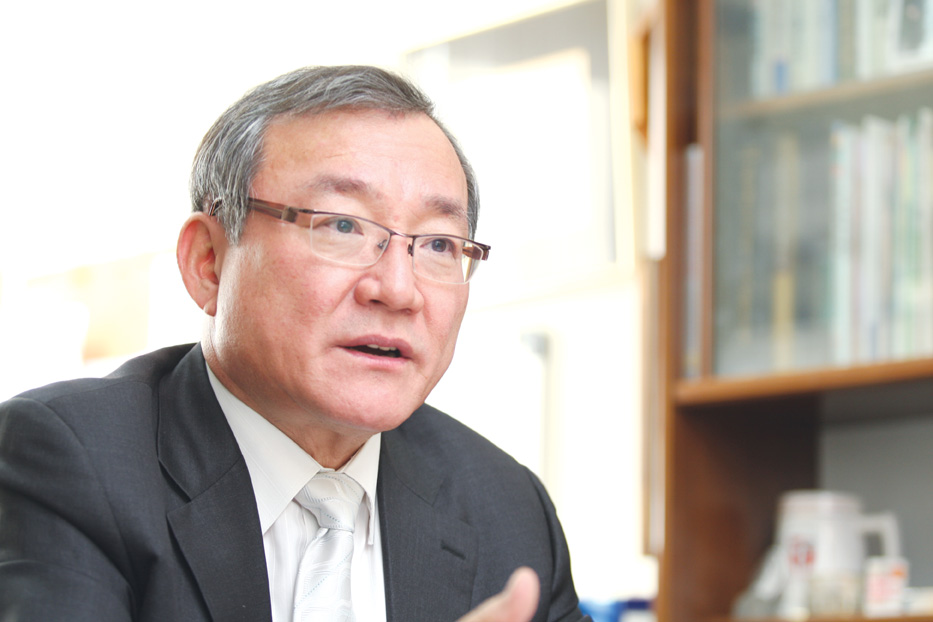Korea's Long History with Nuclear Power
Industry maintains close ties with foreign countries to strengthen its overseas presence

Korea's successful bid for a project to build four nuclear power units in the United Arab Emirates has capped the nation's 50-year history of nurturing the nuclear power industry. Now the nation is accelerating its efforts to make the industry one of its exporting mainstays and growth engines. Korea's latest achievements, including deals with Jordan and the UAE, are owed to the nation's continuous R&D activities, said Park Gun-cheorl, president of the Korean Nuclear Society (KNS). He noted that Korea badly needs to nurture gifted professional manpower, essential to make the most of the latest feats and back up the momentum for a leap forward of the Korean nuclear power industry.
Park discussed the status and prospects of the Korean nuclear power industry during his recent interview with NewsWorld.
Question: Will you give an assessment of the technological status of the Korean nuclear power industry in connection with Korea's landing of a deal to build four nuclear power units in the United Arab Emirates?
Answer: The Korean nuclear power industry has witnessed technological advancements after surpassing the stage of self-sufficiency. Korea's development of future reactors is on par with advanced countries and is globally recognized. This is owed to Koreans' passion and awareness toward the necessity of nuclear power for energy. Despite such bitter episodes as the Buan Incident in which residents clashed with the government over the long-standing issue of selecting a site for a depository for low- and medium-grade radwaste, Korea has made strides in the development of the Korean nuclear industry and the construction of nuclear power units.
For Korea, a nation with a scarcity of natural resources, national leaders have come to the aid of nuclear power projects. In particular, President Lee Myung-bak's unwavering support has paid off.
Q: How does the nuclear power deal with the UAE have an impact on Korea's bids for future nuclear power construction projects?
A: The Korean nuclear power industry was recognized internationally once a Korean consortium was selected to build Jordan's first ever nuclear reactor, a 5MW research reactor, representing the first overseas deal for a Korean reactor design last December. The Jordan deal gave encouragement to Korea. The nation did lots of things, including a bid book written in English to publicize the safety of Korean nuclear units for the international community, to prepare for submitting a bid to the Korean Peninsula Energy Development Organization (KEDO)'s light-water reactor project for North Korea. The deal with the UAE did not come all of a sudden, but through seamless preparations.
Q: If the sodium-cooled fast reactor (SFR), a technology for reusing spent nuclear fuel, is developed, in reality, the longevity of spent nuclear fuel will last for between 150 years and 1,000 years. How much time it will take for Korea to get the SFR program underway?
A: We have a plan to build an SFR experimental facility by 2020. There is no worry for nuclear fuel since uranium might continue to be available for 1,000 years. The Korea Atomic Energy Research Institute is working on the development of the related technology.
Q: Please comment on talks on the revision of the Korea-U.S. Nuclear Cooperation Agreement.
A: KNS has had active exchanges with the American Nuclear Society (ANS) via academic meetings as Korea studies freely after obtaining approval within a comprehensive boundary, but it has nothing to do with the right to regain sovereignty over nuclear power. We need to take a quiet approach since all nations, including the United States, Japan, France and China, might hold it in check. Korea and the United States will have to promote cooperation.
Q: Will you explain Korea's promotion of international exchanges?
A: Korea has maintained active relationships with India and the Philippines and other countries of Southeast Asia. In particular, the nation's ties with Indonesia, Vietnam and Thailand are vigorous. The nation is in talks with India and Vietnam for exports. Korea will do its best to win the Netherlands' project to build the Pallas research reactor, as the nation is most likely to resume negotiations on the project.
We plan to expand exchange activities with Tunisia, Malaysia and Algiers. I went to India in my capacity as a delegate of KNS on March 5 instead of attending Seoul National University's commencement ceremony. We have also arranged invitations for foreign experts to participate in spring and fall academic forums.
Q: What is the status of Korea's nuclear power technology self-sufficiency?
A: Korea is now aiming at localizing a nuclear power design code by 2012, which will be applied in Korea, but not in foreign countries. nw
Park Gun-cheorl, president of the Korean Nuclear Society
3Fl, 292-47, Shindang 6-dong, Chung-gu, Seoul, Korea 100-456
Tel : 82-2-2235-6114 / Fax : 82-2-2235-0799